Top 10 Politicians in IndiaIt is not convenient to compile the complete report of the who's who of a nation as multicultural as India. Yet these political personalities presence reaches across their initial roles and posts. The boundaries of authority are characterized by the people who possess it. Recognized as some of the most privileged in the nation, the 10 politicians on our catalog assuredly derive their name from the decisions they make, but it's not the primary source of everyone's strength. For instance, Prime Minister Narendra Modi has accomplished quietness and secretiveness, skillfully integrating it with a novelty factor to append an ambiance to his legislative mandate. Instability is the latest ideology of politics, from surgical strikes to economic liberalization. His two main power multipliers, BJP's National President Amit Shah and RSS chief Mohan Bhagwat, have been reinventing India's democratic process as he builds his dream of New India and trying to re-build its public debate. At the very same time, the ministerial ministers Arun Jaitley and Nitin Gadkari, who've been lubricating the wheels of management team to ensure GDP growth Rate, Foreign direct investment (FDI) and road building, are serving Narendra Modi's core sustainable development. Chief ministers, such as Nitish Kumar and Mamata Banerjee who oppose the Modi policy, were on the other side of the continuum. But since then, the dominant political paradigm was revamped by 2 unorthodox leaders, UP Chief Minister Yogi Adityanath and imprisoned AIADMK Chief Shashikala, who were unexpectedly raised from the periphery to the Centre. And there is also Rahul Gandhi, the perpetual assistant coach, who in the political climate, has still yet to establish his position. He is capable of learning from Narendra Modi, Mohan Bhagwat, Mamata Banerjee and Yogi Aditya Nath, some other representatives of the group. In this blog we are going to define the Top 10 Politicians of India. 1. Narendra Modi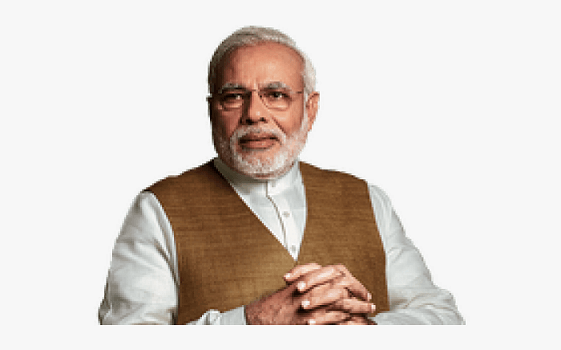
Narendra Damodardas Modi (birthed 17 September 1950) is an Indian politician who has served since 2014 as India's 14th and recent Prime minister. He was served as Chief Minister of Gujarat from 2001 to 2014 and also the Member of Parliament (MP) for Varanasi. Modi is a leader of the BJP (Bhartiya Janata Party) and of a Hindu nationalist voluntary organization, the RSS (Rastriya Swayamsevak Sangh). Modi is the first prime minister to obtain two successive mandates with a grasp, the meaning just outside of the INC (Indian National Congress) and the second to absolute upwards of five years in government after Atal Bihari Vajpayee. Birth in Vadnagar to a Gujarati community, Modi assisted his father selling tea as a kid and then he managed his own shop further on. At the age of 8, he was recruited to the RSS, starting a long relationship with the Rastriya swam Sevak Sangh (RSS). Since graduating from high school, Modi moved out of home in part because of Jashoda ben Chiman Lal (Modi's child marriage), that he discarded and widely embraced only several years later. After moving to Gujarat, Modi traveled across India for 2 years and toured a number of conservative places. He became a full-time employee of the RSS in 1971. Modi was pressured to go into exile after the period of emergency enforced around the country in 1975.In 1985, the RSS appointed Modi into the BJP and until 2001, he occupied many posts within the party leadership, growing to the level of special envoy. Due to Keshubhai Patel's declining health and bad public reputation regarding the Bhuj earthquake, Modi was designated as a Chief Minister of Gujarat in 2001. Eventually afterward, Modi was named to the regional parliament. His presidency was termed implicated in, and otherwise criticized for dealing with the 2002 Gujarat protests. No testimony to start prosecutorial litigation toward the Modi honestly was found by a Special Investigative Committee established by the Supreme Court. His initiatives as Chief Minister, lauded with promoting economic growth, have earned accolades. His state department has been required to effectively and drastically enhance the state's indicators of health, education and employment. In the 2014 elections, Modi led the BJP, which gave the people a large proportion in the Indian regional parliament, the Lok Sabha, for the first period since 1984 for just about any mainstream candidate. The Modi government has attempted to increase FDI in the Indian economy and to reduce expenditure on medical and rehabilitation programs. In the bureaucratic system, Modi has helped to control productivity; he has concentrated control by dismantling the Planning Department. He commenced an elevated hygienic project, started a contentious austerity measures of large-elevated banknotes and depleted or repealed international environmental laws. Regarding his party leadership success in the 2019 general election, his regime annulled the particularly unique status of the state Jammu and Kashmir. The Nationality Amendment bill was also implemented by his government, which resulted in significant protests throughout the world. Narendra Modi, identified as implementing a generational change against right extremism, persists a subject of domestic & global dispute regarding his Hindu conservative views and his possible role in the Gujarat disturbances of 2002, mentioned as proof of an ethnocentric progressive agenda. Personal Information
2. Amit Shah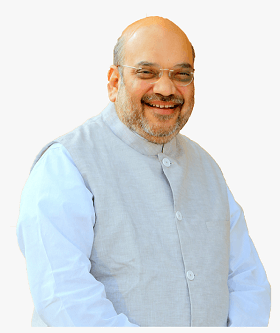
Amit Anilchandra Shah (birthed in 22 October 1964), willing to serve as the Minister of The Interior Affairs, is an Indian politician and venture capitalist. From 2014 to 2020, he held the position of the president of BJP (Bharatiya Janata Party). In the Gandhinagar (Gujrat) 2019 Indian national election, he was appointed to the regional parliament, Lok Sabha. He was previously appointed in 2017 from Gujarat as a representative of the national parliament, Rajya Sabha. He was appointed at the age of 54, and is the youngest massive Home Minister to serve. He is the BJP's campaign chairman and Narendra Modi's connected adviser. Amit Shah was a participant of the ABVP (Akhil Bharatiya Vidharti Prishad), the student faction of the RSS (Rastriya Swayamsevak Sangh), across his undergrad days. He obtained an ABVP role at the age of 18 and entered the BJP in 1987. In 1997, Shah had been first elected as the Member of Legislative assembly (MLA) in Gujarat for a role partially containing Ahmedabad, Sarkhej (a by-election). He proceeded to retain it till the abolition of the position in 2008 in the 1998, 2002 and 2007 elections, and was then appointed from neighboring Naranpura in 2012. His representation-based portfolios in the Gujarat state legislature as a personal friend of Chief Minister Narendra Modi. Even during 2014 General Elections, Amit Shah was in command of the BJP for World's premier and most economically influential state, Uttar Pradesh. 73 out of 80 seats were obtained by the Bharatiya Janta Party (BJP) and its supporters. As a result, Shah grew to national notoriety and was elected a permanent president of the BJP party in July 2014. \\ Until 2014, he has performed a coordinating and member status position in several states' elections. The BJP found greatness in the election to the Legislative Council in Maharashtra, Jammu & Kashmir, Haryana, Jharkhand and Assam during its first two year, but gained votes in 2015 in Delhi and the broad eastern province of Bihar. He was partially associated with party successes in Uttar Pradesh, Uttarakhand, Gujarat and Manipur in 2017, although in the wider Punjab elections, the Akali-BJP coalition lost all control. In 2018, in the regions of Rajasthan, Chhattisgarh, and Madhya Pradesh, the party regained control. After a year, in the 2019 Indian national election through Amit Shah's guidance, the BJP secured 303 constituencies to get a plurality. Personal Information
3. Mohan Bhagwat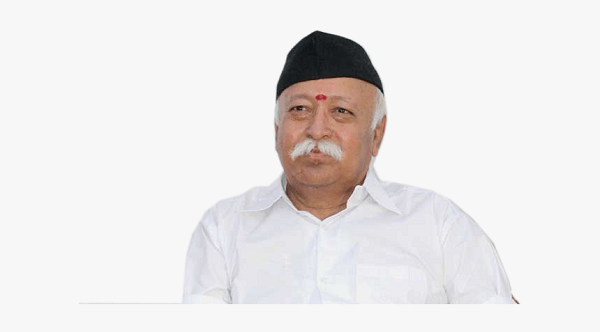
The Chief (Sarsanghchalak) of the Hindutva group RSS (Rashtriya Swayamsevak Sangh), leading in India, Mohan Bhagwat (born in 11 September 1950). As the predecessor to K.S. Sudarshan, he was selected. In March 2009. Mohan Madhukar Bhagwat was born in Chandrapur in the Mumbai State of India, into a Marathi community. He emerged from an RSS progressive family. The Karyavah (chief of staff) for both the Chandrapur region and then the provincial promoter (Prant Pracharak) for Gujarat his father, Madhukar Rao Bhagwat. His mother, Malati, was indeed a Female's Division representative of the Rashtriya Swayamsevak Sangh (RSS). Mohan Bhagwat was graduated from 'Lokmanya Balgangadhar Tilak Vidyalaya' after then from Janata College in Chandrapur during the first year of Bachlor of Science (BSc). He was graduated from the Government Veterinary College, Nagpur, in veterinarian science and animal rearing. He quit the master's degree in Veterinary Sciences and, more toward the beginning of 1976, became a pracharak (massive promoter or worker) of the Rashtriya Swayamsevak Sangh (RSS). Mohan Bhagwat then became 'Promotor in Akola, Maharashtra in 1977 after operating hidden during the Emergency, and grew within the organization responsible for the areas of Nagpur and Vidarbha. From 1991 to 1999, he was 'Akhil Bharatiya Sharirik Pramukh' (in command of fitness exercise) for the nation. As 'Akhil Bharatiya Pracharak Pramukh,' he is even further elevated (in-charge of RSS (Rashtriya Swayamsevak Sangh) volunteers operating full-time for India) (in-charge of RSS volunteers working full-time for India) (in-charge of RSS volunteers working full-time for India). Although, in 2000, Rajendra Singh and H.V. Sheshadri, caused by poor fitness, officially resigned as RSS President and General Secretary respectively, even as new president, K.S. Sudarshan was appointed and Mohan Bhagwat proclaimed 'Sarkaryavah' (general secretary). On 21 March 2009, Mohan Bhagwat was appointed to be the Sarsanghchalak (Chief Executive) of the RSS (Rashtriya Swayamsevak Sangh) He is one of the youthful representatives to lead the Rashtriya Swayamsevak Sangh (RSS) after M.S. Golwalkar and K.B. Hedgewar. In June 2015, the Indian government directed the Central Industrial Security Force (CISF) to offer the round-the-clock defense to Mohan Bhagwat despite a high perceived threat from traditional Muslim terrorist organizations. Bhagwat is one of the most secure Indians currently with Z+VVIP security cover. Mohan Bhagwat has become the first RSS leader to be formally welcomed by then President Pranab Mukherjee to the Raj Bhavan in 2017. As way of working out to the general community, Mohan Bhagwat chaired a three-day conference at Vigyan Bhawan in Delhi in September 2018. At that period, he also said RSS has rejected some pieces of M.S. Golwalkar's "Couple of Opinions" which are no longer related to the present instances. In November 2016, speaking to 'Prerna Shibir' mostly on 80th birthday of Rashtra Sevika Samiti, the RSS female's division, Mohan Bhagwat said that in the history, Homo sapiens fed into the room of several other Homogenous animals, such as Neanderthals and Homo floresiensis, but somehow Homo sapiens could be obsolete during the next thousands of years. In September 2017, Mohan Bhagwat was reported as telling that "Hinduism was really the only genuine culture in the world and several other religions were just doctrines which originated from Hinduism." He admired the judgment of Ram Janmabhoomi and the Nationality Laws Amendment address (CAA) on Dussehra in the 2020. "He traumatized of those who, by promoting a mistaken perception, "fooled our Fellow Muslims and lamented the agitators' harm to "community cohesion." This elicited a reply from the Muslim leader, Asaduddin Owaisi, who said that the Muslims should not be fooled as kids. Personal Information
4. Rajnath Singh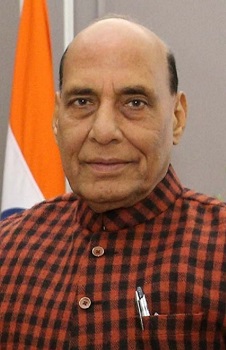
Rajnath Singh (born in 10 July 1951) is a leader from India who serves as India's Defense minister. He is the former BJP (Bharatiya Janata Party) Chief. He has worked extensively in the Atal Bihari Vajpayee Cabinet as the Chief Minister (CM) of Uttar Pradesh and as a Member Of Parliament. During the First Modi Government, he was the chief of the ministry of Home affairs. He has also served two times as the President of the Bhartiya Janata Party, from 2005 to 2009 and from 2013 to 2014, respectively. He is a senior BJP leader who began his career as a Swayamsevak of RSS (Rashtriya Swayamsevak Sangh). He is an advocate of the Hindu nationalist philosophy of the Bhartiya Janata party (BJP). He was a parliamentarian, Lok Sabha, twice from Lucknow (Lok Sabha) and once from Ghaziabad (Lok Sabha constituency). (Lok Sabha constituency). He was also involved in State Politics and two times served as Chief Minister of the Haidergarh (inspection district) MLA. Rajnath Singh was born from Ram Badan Singh (father) and Gujarati Devi (mother) in Bhabhaura town in Chandauli district, Uttar Pradesh. He was birthed into a farming family. He obtained his early education from his town's municipal school and went on to achieve a master's degree in physics, gaining first division grades from the University of Gorakhpur. He was influenced by the philosophy of Rashtriya Swayamsevak Sangh (RSS) from childhood. He was employed as a physics professor at K.B. Mirzapur PG College, UP. He has only one brother, Jaipal Singh. In 1964, at the age of 13, he had been involved in the Rashtriya Swayamsevak Sangh (RSS) and stayed linked to the group. He also became Mirzapur's Shakha Karavah (Secretary General) in 1972. He went into politics during two years in 1974. Rajnath Singh was the administrative secretary of the ABVP (Akhil Bharatiya Vidyarthi Parishad) (the student division of the RSS) in Gorakhpur among 1969 and 1971. In 1972, he became the director general of the Mirzapur division of the RSS (Rashtriya Swayamsevak Sangh). In 1974, he was served as a secretary of the Bharatiya Jana Sangh Mirzapur Committee, the precursor of the Bharatiya Janata Party (BJP). Rajnath Singh was named Regional Chief of the Jana Sangh in 1975, aged 24. He was appointed to the Legislative Council of Mirzapur in 1977. At a certain period, he was inspired by Jayaprakash Narayan's JP Agitation and entered the Janata Party and was elevated to Mirzapur's Legislative Council. He rose to prominence in the state (governance) at a certain period and entered in the BJP in 1980 and became one of the party's early members. In 1984, he emerged as the State President of the BJP (Bharatiya Janata Party) Youth Wing, in 1986, National General Secretary, and in 1988, National Chief. He was nominated to the constituent assembly of Uttar Pradesh as well. He was designated as the Ministry of National education in 1991, when the Bharatiya Janata Party (BJP) first formed its coalition in Uttar Pradesh. For a period of two years, he stayed a leader. Anti-Copying Act, 1992, which rendered copying an anti-bailable crime, modernizing science documents, and introducing Ayurveda mathematics into the curriculum were providers around the world of his time as Ministry of National education. He remained Uttar Pradesh's Chief in 2000 and was designated Haidergarh's MLA twice in 2001 and 2002. He was followed by Ram Prakash Gupta as Chief Minister (CM) and achieved the presidential law, later on, after Mayawati emerged Uttar Pradesh's Chief Minister (CM). Personal Information
5. Yogi Adityanath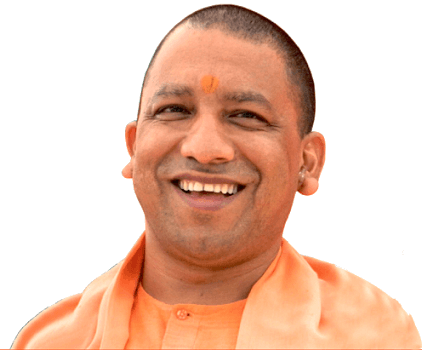
Yogi Adityanath (birth name Ajay Mohan Bisht born in 5 June 1972) is an Indian Hindu priest and democrat who has served as Uttar Pradesh's 22nd and present CM (chief minister) since 19 March 2017. He was announced as the Chief Minister on 26 March 2017 just after Bharatiya Janata Party (BJP) captured the 2017 Assembly Constituency elections, in which he was a popular activist. Through 1998, he has worked 5 successive sessions as a Parliamentarian (MP) from the Gorakhpur region, Uttar Pradesh. Yogi Adityanath is also the Mahant or chief monk of the Gorakhnath Math, a Place of worship in Gorakhpur, a designation he held in September 2014 after the demise of his religious "father" Mahant Avaidyanath. He is also the creator of Hindu Yuva Vahini, an organization of the Hindu Nationalists. According to his divisive ideologies, he is also deemed a Hindu nationalist. He has a reputation as a gadfly of the right-wing nationalist Hinduism. Yogi Adityanath was born in the small village of Panchur, in Pauri Garhwal, Uttar Pradesh, on 5th June 1972, named Ajay Mohan Bisht. Anand Singh Bisht, his late father, was a park ranger. He was the second of four siblings and three sisters to be raised by parents. He graduated from Hemwati Nandan Bahuguna Garhwal University in Uttarakhand with a bachelor degree in Mathematics. He was granted with the title 'Yogi Adityanath' after taking Diksha as sanyasi of the Nath culture, and named as the descendant of the Mahant Avaidyanath. Though centered in Gorakhpur, Adityanath also traveled his home village after his induction, setting up a school there in 1998. In 1993, at the age of 21, Adityanath relinquished his parents and then became a follower of the then holy man of Gorakhnath Math, Mahant Avaidyanath. After the demise of his mentor, Mahant Aavaidyanath, on 12 September 2014, he was elevated to the status of Mahant or Supreme Priest of Gorakhnath Math. On 14 September 2014, in the midst of sacred ceremonies of the Nath community, Yogi Adityanath was created Peethadhishwar (Chief Seer) of Math. Linguist Christophe Jaffrelot mentions that Yogi Adityanath refers to the particular legacy in Uttar Pradesh of Hindu nationalism politics that must be linked back to Mahant Digvijay Nath, who on 22 December 1949 directed the seizure of the Babri Masjid in Ayodhya for Hindus. The Mahasabha of hindus belonged to both Digvijay Nath and his predecessor, Mahant Avaidyanath, and had been appointed to Parliament on the ticket of that party. The two strands of Religious extremism raised together after the BJP (Bharatiya janta Party) and the Sangh Parivar entered in the Ayodhya agitation in the 1980s. In 1991, Avaidyanath moved to the BJP (Bharatiya Janta Party), but still retained essential independence. In 1994, Yogi Adityanath was named as the descendant of Avaidyanath as Mahant of Gorakhnath Math. After four years, he was appointed to the Indian Legislature's Lower House (the Lok Sabha). During his first election success, Adityanath began his independent Hindu Yuva Vahini youth wing, which was famous for its initiatives in eastern Uttar Pradesh and was influential in the meteoric rise of Adityanath. There have been persistent disputes out over distribution of election tickets between Adityanath and the BJP management. After all, since Adityanath has worked as a star promoter for the party, the BJP (Baratiya Janta Party) has not let the pressures escalate. In 2006, as a vital political issue, he adopted linkages between Nepali Stalinists and Indian Left-wing parties and incentivized Madhesi representatives in Nepal to challenge Maoism. In 2008, his motorcade was seriously wounded while heading back to Azamgarh for an anti-terrorism campaign event. The attack that left one individual killed and injured at least six people. At the age of 26, Yogi Adityanath was the 12th Lok Sabha's newest person. He has been nominated to the Gorakhpur assembly for 5 successive terms (in 1998, 1999, 2004, 2009 and 2014 elections) (in 1998, 1999, 2004, 2009 and 2014 elections). The participation of Adityanath in Lok Sabha was 77 percent and he posed 284 queries, took part in 56 discussions and in the 16th, Lok Sabha initiated three private constituent acts. In the 2017 parliamentary elections in Uttar Pradesh state, he was an influential promoter for the BJP (Bharatiya Janata Party). On Saturday, 18 March 2017, Yogi Adityanath was elected as a Chief Minister of State and was sworn in on the following day, 19 March, after the BJP won the assembly elections. After he became CM (Chief Minister), the unauthorized abattoirs in Uttar Pradesh were closed down by the government. Yogi instructed anti-Romeo groups to be created. He enacted a blanket prohibition on cow-smuggling and remained on UPPSC results, examinations and interviews until any attempt. He placed a penalty on tobacco, pan and gutka in government buildings around the state and formed the official's commitment to dedicate 100 hours every year for the Swachh Bharat Mission. The Uttar Pradesh police banned over than 100 police officers. Personal Information
6. Rahul Gandhi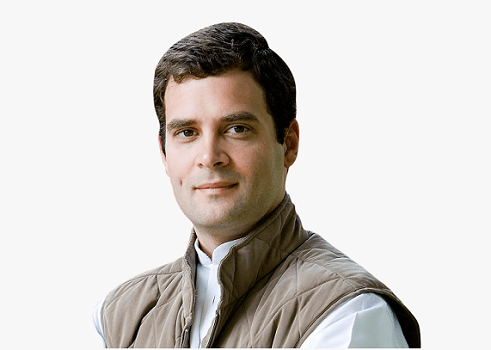
Rahul Gandhi (born in 19 June 1970) is an Indian politician and a participant of the State Legislature in the 17th Legislative Council, serving the electorate of Wayanad, Kerala region. A representative of the INC (Indian National Congress), he worked from 16 December 2017 to 3 July 2019 as Chief of the Indian National Congress party. Rahul Gandhi is the president of the Indian Youth Congress and of NSUI's (Indian National Students Union). He is however a member of the Rajiv Gandhi Foundations and the Benevolent Fund of Rajiv Gandhi. He was born in New Delhi, around Delhi and Dehradun, Rahul Gandhi spent most of his childhood time and remained away from people domain for most of his preschool and adolescent youth. He received basic education in New Delhi and Dehradun (Uttarakhand), but was subsequently homeschooled due to security reasons. Since going to Harvard College, Rahul Gandhi started his undergraduate (UG) career at St. Stephens College. Rahul Gandhi moved to Rollins College in Florida due to security concerns following the death of his father, the late PM (Prime Minister Rajiv Gandhi). He qualified in 1994, the year following the M.Phil acquisition of Gandhi from Cambridge University. After completing the graduation, Gandhi started his professional career with a strategy consulting company in London, the Monitor Company. He gradually came back to India and founded Backops Services Private Ltd, a Mumbai-based software consultancy company. Rahul Gandhi declared in 2004 that he would join mainstream politics and ultimately won the state elections conducted that year in Amethi, a position traditionally occupied by his dad; he captured again during 2009 and 2014 from the same constituency. Rahul Gandhi was appointed Congress Vice-President in 2013, having recently governed as the Director General, despite demands from Congress party leaders for his community involvement in political parties and federal govt. In the 2014 Indian general election, Rahul Gandhi directed the INC's (Indian National Congress) campaign; the party endured the worst electoral performance in its tenure, capturing just 44 seats, similar to 206 seats earlier in the 2009 general election. Rahul Gandhi was born as the first of the 2 kids of Rajiv Gandhi, who subsequently became Prime Minister (PM) of India, and Sonia Gandhi, birthed in Italy, who further became chief of the National Congress of India, and as the grandson of Indira Gandhi, former Prime Minister. Feroze Gandhi, his grandfather, was a Parsi from Gujarat. He is also the great-grandson of Jawaharlal Nehru, the first Prime Minister India. His younger sister is Priyanka Vadra, and his brother-in-law is Robert Vadra. He describes himself as a Brahmin Hindu. Prior to actually joining The Doon School in Dehradun, Uttarakhand during 1981 to 1983, Rahul Gandhi went to St. Columba's School, Delhi. In the meantime, on 31 October 1984, when Indira Gandhi was killed, his dad entered in politics and became Prime Minister. Rahul Gandhi and his sibling Priyanka were then home-schooled because of the security concerns posed by Indira Gandhi's family from Sikh radicals. In 1989, Rahul Gandhi entered in St. Stephen's College, Delhi (an aligned college of the Delhi university (DU)) for his undergraduate degree, but after completing the first-year assessments, he migrated to Harvard University. In 1991, after Rajiv Gandhi was murdered during a campaign event by the Liberation Tigers of tamil eelam (LTTE), he moved to Rollins College in Florida, USA, because of security considerations and gained his B.A. In the year 1994, he accepted the alias Raul Vinci through his tenure at Rollins college, and his identification was revealed just to university administrators and intelligence services. He went on to receive an M.Phil. 1995, from Trinity College, Cambridge. Rahul Gandhi declared his arrival into governance in March 2004 by declaring that he might face the May 2004 elections, participating in the Lok Sabha, India's lower chamber of Parliamentary, for his father's previous seat of Amethi in Uttar Pradesh. His mother retained the region unless she moved to Rae Bareilly's neighboring bench. Congress had been performing badly in Uttar Pradesh, retaining at that time just 10 of the state's 80 Lok Sabha seats. Personal Information
7. Arvind Kejriwal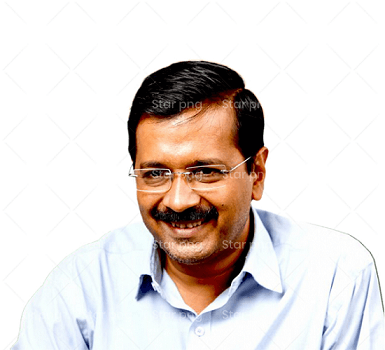
Arvind Kejriwal (born on 16 August 1968) is an Indian politician and former government employee who has been Delhi's new and seventh CM (Chief Minister) since February 2015. From December 2013 to February 2014, Kejriwal was also Chief Minister (CM) of Delhi, resigning after 49 days of taking power. He is presently the national chairperson of the Aam Aadmi Party (AAP), which, with a significant victory, captured the 2015 Delhi Legislative elections, gaining 67 out of 70 assembly seats. In 2006, in acknowledgment of his participation in the groundswell Parivartan campaign, Kejriwal won the Ramon Magsaysay Honor for Emergent Leadership in a fight against corruption using the (RTI) right to information laws. He contributed his Magsaysay award revenue as a cost incorporates to establish the Social Purpose Foundation For the research, an anti-governmental agency, the same year, after having to resign from government service (NGO). Prior to entering politics, Arvind Kejriwal served as a Joint Commissioner of Income Tax in New Delhi in the Indian Revenue Service. Arvind Kejriwal is an alumni of the Indian Institute of Technology (IIT) Kharagpur in Mechanical Engineering. Following the referendum, Arvind Kejriwal took office on 28 December 2013 as Delhi's CM (Chief Minister). On 14 February 2014, 49 days later, he resigned, saying that he performed so cause of the failure of his coalition legislature to implement his planned anti-corruption bill caused by a lack of support from many other political groups. He was ushered in as Chief Minister on 14 February 2015 for a second term. The victory of his group in the Delhi General Parliament elections. On 16 August 1968, one of the 3 kids of Gobind Ram Kejriwal and Gita Devi, Arvind Kejriwal was born into an upper-middle-class qualified Agrawal family in Siwani, Bhiwani city, Haryana. Kejriwal's father, who qualified from the Aditya Birla Institute of Technology (ABIT), Mesra, was an electrical engineer. Arvind Kejriwal lived much of his time in towns such as Sonipat (Haryana), Ghaziabad and Hisar in northern India. He studied at Campus School of Hisar and at Christian Missionary Holy Child School in Sonipat. He took the IIT-JEE examination in 1985, and ranked 563 in the All-India Rank (AIR). He qualified from the Kharagpur (IIT) Indian Technology Institute with a master in Mechanical Engineering. In 1989, he entered in Tata Steel and he was placed in Jamshedpur. In 1992, Arvind Kejriwal quit and went on leave to prepare for the Civil Services Test. He spent considerable time in Calcutta (current Kolkata), where he visited to Mother Teresa, and served at the Priests of Welfare and the Ramakrishna Project in North-East India and at Nehru Yuva Kendra. After passing via the Civil Services Assessment, Arvind Kejriwal entered the Indian Revenue Service (IRS) in 1995 as of Income Tax's Assistant Commissioner. He was given two years of paid vacation in November 2000 to attend higher studies on agreement that he'd never quit the Job for at least three years after commencing his job. Failure to comply with that criteria would allow him, during the notice period, to reimburse the benefits paid. In November 2002, he reentered. He was granted no appointment for almost a year, as per Arvind Kejriwal, and proceeded to collect his payment without even doing work; thus, after 18 months, he requested for unpaid leaves. He quit from his job in New Delhi as Associate Commissioner of Income Tax (IT) department in February 2006. The Indian government alleged that by not functioning for three years, Kejriwal had breached his initial agreement. Arvind Kejriwal said his 18 months of work and 18 months of pending leave contributed to the stated three-year period over which he could not quit and that because of his association with the National anti-corruption campaign, this was an effort to defame him. The conflict continued over many years before it was settled in 2011, when he earned his money out of the system with the assistance of friends' mortgages. Kejriwal charged a fee of 927,787, but clarified that this should not be treated as an indication of blame. After entering politics, Kejriwal said in 2013 when he was an Income Tax Commissioner, he had preferred government service above gaining crores. One of the biggest complaints aimed at the Jan Lokpal protestors was that the elected officials had no right to define words. As an outcome, it was agreed by Kejriwal and other protesters to engage in politics and fight the elections. They effectively unveiled the (AAP) Aam Aadmi Party in November 2012; Arvind Kejriwal was appointed as the National Chairperson of the Aam Aadmi party. The word conservative represents the term Aam Aadmi, or 'common man,' whose desires Kejriwal suggested representing. A split among Arvind Kejriwal and Anna Hazare was created by the formation of AAP (Aam AAdmi Party). AAP (Aam Aadmi Party) agreed to challenge the vote to the 2013 Delhi Legislative Council, with Arvind Kejriwal disputing toward Sheila Dikshit, the outgoing Chief Minister (CM). In the take to the polls, Kejriwal has become the fifth-most-mentioned Indian leader on social media platforms. Personal Information
8. Mamta Banerjee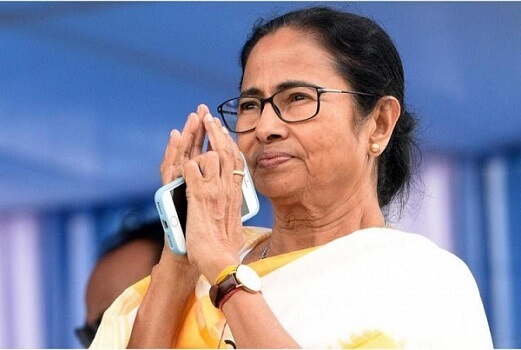
Mamata Banerjee (born 5 January 1955) is an Indian politician who has served as 8th West Bengal and incumbent CM (Chief Minister) since 2011, the first female to take the position. After splitting from the INC (Indian National Congress), she formed the All India Trinamool Congress (AITC or TMC) political party in 1998, and became its chairperson. She is also alluded by her supporters as Didi (which means elder sister) according to many of her opponents as Pishi (indicating parental aunt in Bengali). Mamata Banerjee had worked extensively twice, the first female for doing so, as Railway Minister. She is the first and only woman Coal Minister and the Indian Administration's Minister in Charge for Human Resources and Development, Youth And sports, Women and Child Development in the Government. After resisting the former eminent domain initiatives for the industrialization of the Communist Regime for Special Economic regions in West Bengal at the expense of agriculture and farmers in Singur, she came to popularity. Mamta Banerjee carried off such a resounding victory for the West Bengal AITC (All Indian trinamool congress) alliance in 2011, crushing the 34-year-old Left Wing administration of the Indian Communist Party (Marxist), the oldest legitimately elected socialist revolution in the country, in the meantime. Mamta Banerjee was born in a Bengali Hindu family in Kolkata (previously named Calcutta), West Bengal. It was Promileswar Banerjee and Gayetri Devi who were her guardians. Mamta Banerjee's father, Promileswar passed away owing to shortage of medical attention, when she was 17-year-old. She recognizes herself as a Hindu. In 1970, Banerjee passed the Deshbandhu Sishu Sikshalay Higher Secondary Board Exam. She holds a Bachelor 's degree from Jogamaya Devi College in History. Later, at the Calcutta University, she received her master graduation in Islamic Culture. This accompanied a degree in Education from Shri Shikshayatan College and a law degree from Jogesh Chandra Chaudhuri Law College, Kolkata. She was also awarded with an honorary phd from the Industrial Technology Institute of Kalinga, Bhubaneswar. She was also honored by Calcutta University with a Phd degree in Literature (D.Litt.). When Mamta Banerjee was just 15, Banerjee got engaged with politics. She founded Chhatra Parishad Groups, the student arm of the Congress (I) Party, while studied at Jogamaya Devi College, beating the All India Democratic Students Organization associated with Socialist Unity Centre (Communist) India. Banerjee continued to serve in various roles within the party and other regional conservative campaigns in the Congress (I) Party in West Bengal [citation required]. In the 1970s, Banerjee started her career in politics as a teenage girl in the ruling Congress party. In 1975, when she performed in the car of communist leader and leader Jayaprakash Narayan as a demonstration towards him, she gained popularity in the newspapers. She grew exponentially in the hierarchy of the regional Congress party, and from 1976 to 1980, she stayed the secretary general of the Mahila Congress of India, West Bengal. Mamta Banerjee has become one of youth parliamentarians India ever in the 1984 general election, beating former Democratic leader Somnath Chatterjee to capture West Bengal's Jadavpur legislative Seat. In 1984, she became the general secretary of the Indian Youth Congress party of India in Bengal. At the 1989 leadership contest, in an anti-Congress surge, Banerjee lost her vote to Malini Bhattacharya of the Indian Communist Party (Marxist). In the local elections of 1991, Mamta Banerjee was re-elected, did settle in the Calcutta Southern region. She held the seat of Kolkata South in the local elections of 1996, 1998, 1999, 2004 and 2009. In 1991, By Prime Minister (PM), Mamta Banerjee was designated as Union Minister of State for HRD (Human Resources Development), Youth And sports, and Female and Children's Advancement. V. Rao Narasimha. As the ministry of sports, she declared that Banerjee would withdraw and appealed against the administration's hostility to her plan to develop sports in the state at a campaign event at the Brigade Parade Ground in Kolkata. In 1993, she was released from her holdings. In April 1996, she claimed that in West Bengal, Congress party was working as a lackey of the CPI-M. She said that she was core reasons dissenter and wished a "clean Congress". Personal Information
9. Sonia Gandhi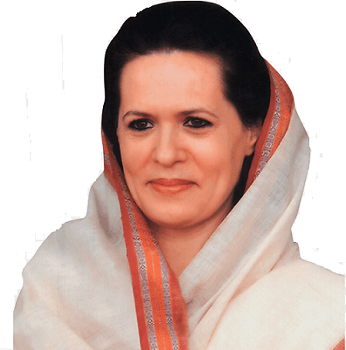
Sonia Gandhi is an Indian leader (born 9 December 1946). She was the chief of the INC (Indian National Congress) party, the democratic left-of-center party that for much of its post-independence background has dominated India. In 1998, 7 years after the death of her husband, Rajiv Gandhi, a previous PM (Prime Minister) of India, she seized over as chief executive and held the position in office for twenty-two years. Sonia Gandhi was formed in a Roman Christian family and was born in a farming town near Vicenza, Italy. She migrated to Cambridge, England, for language courses after finishing her schooling at local public schools, where she met Rajiv Gandhi, and later married him in 1968. She later travelled to India and began staying at the latter's New Delhi home with her mother-in-law, India's former PM (Prime Minister) Indira Gandhi. Sonia Gandhi, although, including during the decades of her husband's prem league, stayed away from the general public arena. Following the death of her husband, Congress members approached Sonia Gandhi to unite the party, but she refused. After further party persuasion, she decided to enter parliament in 1997; she was designated for party chairman the subsequent year, and elected across Jitendra Prasada. In Sonia Gandhi's leadership, the Congress, in alliance with many other center-left political groups, formed a coalition government after the 2004 elections. Since then, Gandhi has been praised with being influential in establishing the re-elected Unified Progressive Alliance (UPA) to government in 2009. Further to the 2004 success, Gandhi refused the premiership; she subsequently headed the governing coalition and the Central Advisory Committee. Over all the course of its lifetime, Sonia Gandhi governed over the advisory councils accredited with the establishment and successful management of such right to life welfare and development initiatives as the RTI (right to information), Food production bill, and MNREGA, as she received criticism relevant to the Bofors controversy and the National Herald Incident. Her overseas conception has also been a topic of much speculation and discussion. Until the latter parts of the previous tenure of the Ruling party, Gandhi's significant involvement in politics started to decline due to medical reasons. She resigned in December 2017 as the chief of Congress, but resumed in August 2019 to unite the party. Sonia Gandhi has been commonly identified being one of the most influential politicians in the region, and is also classified as some of the most powerful women in the world, even though she has rarely retained any public office in the Indian government. Sonia Maino was born on 9 December 1946 in Lusiana (Maini Street), a traditional Cimbrian-speaking community about 35 km from Vicenza in Veneto, Italy, to Stefano and Paola Maino. She was also one of 3 sisters born in a conservative Roman Catholic Religious family: Sonia, Nadia and Anoushka. Sonia passed her childhood in a village near Turin, Orbassano. She attended the regional Christian schools for school education; one of her initial educators characterized her as "a disciplined small girl, who learned as much as was essential" A small construction company in Orbassano was founded by Stefano, who was a construction capulet. He was a fervent follower of Benito Mussolini and the Italian National Fascist Group, despite fighting against the Soviet army alongside Hitler's German army on the Eastern block in Second World War. The townhouse had textbooks about Mussolini's article mentioned wrapped in leather. In remembrance of Italy's involvement in the East Region, Stefano designated Sonia and her elder sister, Nadia. In 1983, he expired. Sonia Gandhi has two sisters who, alongside their mom, still live in Orbassano. At the age of 13, Gandhi finished her primary education; her final progress report interprets: "smart, disciplined, dedicated would achieve well at the secondary school for educators" She was aspiring to be a flight attendant. She began studying English at the language class of the Bell Educational Trust in the town of Cambridge in 1964. She found Rajiv Gandhi at the Varsity Cafe the subsequent year, where she served as a portion waitress while studying for an engineering course at the Trinity College University of Cambridge. In this sense, the Times of London wrote, "Mrs Sonia Gandhi was an 18-year-old candidate at a small language institution in Cambridge in 1965, when she found a boy named engineering graduate" The wedding vows at a Hindu wedding in 1968, after which she shifted to her mother-in-law and then Prime Minister Indira Gandhi's home. The pair had two kids, Rahul Gandhi (born 1970) and Priyanka Vadra (born 1972). Sonia and Rajiv refused all involvement in government, while contributing to the powerful Nehru family. As an airline employee, Rajiv served while Sonia took care of her family. She spent significant time with her mother-in-law, Indira Gandhi; she recounted her knowledge, "She [Indira Gandhi] showered me including all her care and respect" in a 1985 conversation with the Hindi-language publication Dharmyug. The Rajiv family considered going overseas for a short period of time shortly after the left's sacking from government in 1977 in the wake of the Indian Crisis. Although, in 1982, after the death of his younger brother Sanjay Gandhi in an airplane crash on 23 June 1980, Rajiv went into politics, Sonia proceeded to concentrate on her family and resisted all common interaction. Personal Information
10. Nitish Kumar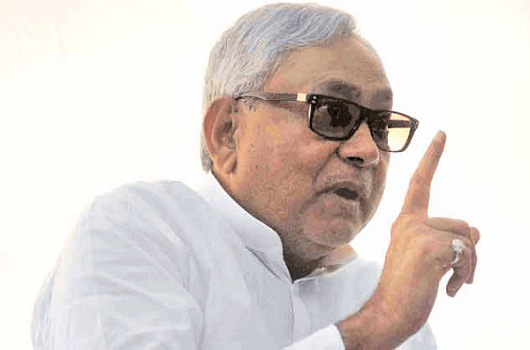
Nitish Kumar was born in 1 March 1951. He is an Indian politician who has worked since 2015 as the 22nd CM (Chief Minister) of Bihar, a region in India, and has served on five numerous occasions in that post. He has also worked in the Indian government of the Nation as a Minister. Nitish Kumar is a member of an organization called the Janata Dal (United States). The nation welcomed Kumar's administration as a welcome shift from a brief drought of massive corruption, criminality and mismanagement. He recruited over than 100,000 teachers and administrators as the Chief Minister, established that physicians served in primary healthcare centers, electrified several towns, built highways, halved women innumeracy, transformed around an uncivilized state by clamping down on offenders, and doubled the typical Bihari's earnings. Nitish Kumar quit on 17 May 2014, accepted ownership for the weak results of his group in the 2014 state elections, and was replaced by Jitan Ram Manjhi. After all, after a political turmoil in Bihar, he came to government in February 2015 and captured the November 2015 gubernatorial elections. He was appointed on 10 April 2016 as his party's national chief. Due to disagreements with governing coalition Rashtriya Janata Dal (RJD) regarding the appointment of Tejashwi Yadav, Deputy Chief Chief Minister and member of the Rashtriya Janata Dal, he quit once more on 26 July 2017 as Chief Minister (CM) of Bihar in a First Application Filed accusing bribery lodged by the CBI (Central Bureau of Investigation). Moments later, he entered the majority of the National Democratic Alliance (NDA), which had been the opponent until now, and won a majority in the legislature. The very next day, Nitish Kumar became CM (chief minister) again. Liquor was prohibited in the region in April 2016 by the Bihar administration through Nitish Kumar. In Bakhtiarpur, Bihar, Nitish Kumar was born on 1 March 1951. His dad was a herbal doctor, Kaviraj Ram Lakhan Singh; his mom was Parmeshwari Devi. Nitish kumar is a member of the farming class of Kurmi. He completed a course from Bihar College of Engineering (presently NIT Patna) in mechanical engineering in 1972. He participated, probably twice in the Bihar Electric Supply Committee and later entered politics. On 22 February 1973, he wedded Manju Kumari Sinha (1955-2007), and the pair had one son. Owing to pneumonia, Manju Sinha expired in New Delhi on 14 May 2007. Nitish Kumar belongs to the group of progressive legislators. He was aligned with the groups of Jayaprakash Narayan, Ram Manohar Lohia, S. N. Sinha, Karpuri Thakur and V. P. Singh while his formative days as a leader. Among 1974 and 1977, Nitish Kumar involved in Jayaprakash Narayan's campaign and entered the Janata party led by Satyendra Narain Sinha. In the Ruling party of Atal Bihari Vajpayee, Nitish Kumar was initially the Federal Minister for Railway and Minister for Public Transportation, and later the Minister for Farmland in 1998-99. He quit in August 1999 amid the railway tragedy at Gaisal, for which he denied responsibility as a senator. In his brief tenure as Railway Minister, though, he implemented comprehensive changes, such as the 2002 Online online reservation service, the establishment of a massive number of railroad ticket booking desks, and the implementation of the tatkal system for instant booking. Personal Information
Next TopicTop 10 Richest Caste in India
|
 For Videos Join Our Youtube Channel: Join Now
For Videos Join Our Youtube Channel: Join Now
Feedback
- Send your Feedback to [email protected]
Help Others, Please Share










